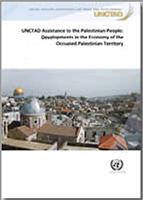
The far-reaching socioeconomic ramifications of the coronavirus pandemic have been compounded, and in certain respects marginalized, in the Occupied Palestinian Territory by a severe fiscal crisis triggered by the threat of de jure annexation of large areas of the West Bank by the occupying Power.
In the context of prolonged and deepening occupation and restrictions on mobility that have continued for decades, these developments combined to make 2020 the worst year for the Palestinian people since the establishment of the Palestinian National Authority in 1994.
Despite the severity of the pandemic shock, occupation remains the major impediment to development in the Occupied Palestinian Territory.
Economic recovery in 2021 and beyond hinges on actions that will or will not be taken by the occupying Power and the scale of donor support. A slow or inadequate recovery in 2021 will heighten the risk of bankruptcy for small and medium-sized enterprises brought to the brink by the pandemic.
The Palestinian National Authority is saddled with responsibilities far greater than the resources and policy space at its disposal. In addition, the economic impact of the recent air strikes on the Gaza Strip and confrontations in the rest of the Occupied Palestinian Territory is expected to be enormous and should be accounted for in future reports by the United Nations.
Until occupation is ended, there is no substitute for adequate support from donors and the international community for rebuilding the shattered physical and institutional infrastructure and the fragile health-care system.
For international support to translate into genuine progress, all of the restrictions imposed by the occupying Power on the Occupied Palestinian Territory should be lifted.


